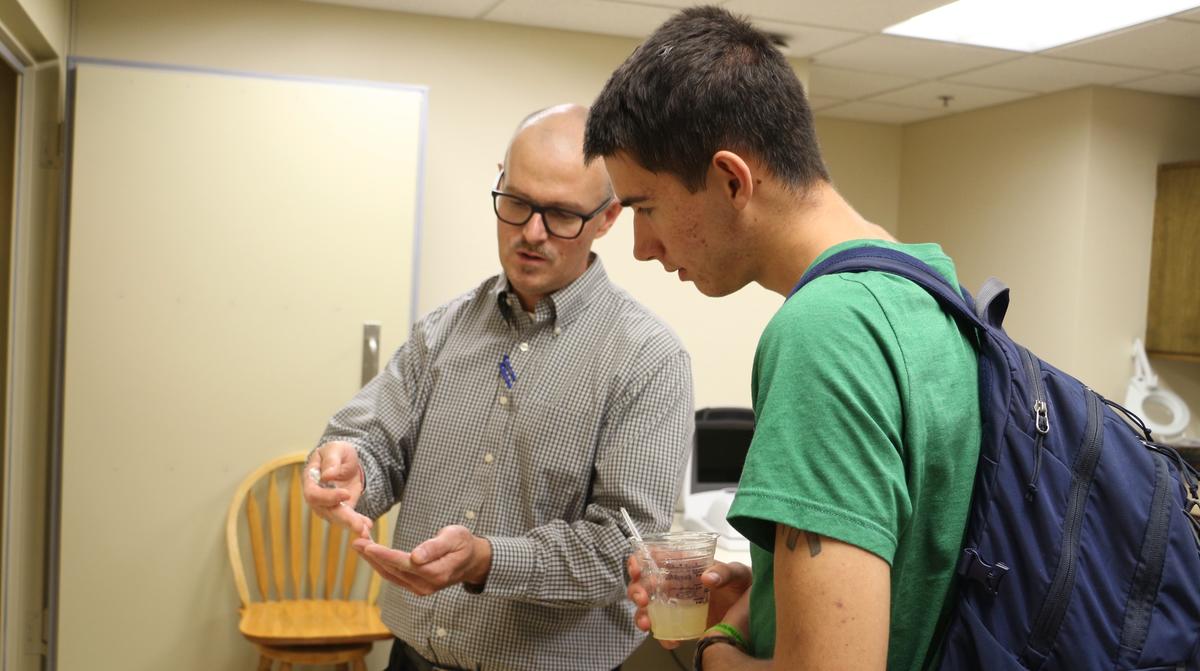
October has been deemed National Protect Your Hearing Month. It’s a time designated to raising awareness about issues related to hearing. Assistant Professor Brent Fisher agreed to answer some questions about the topic.
Fisher is an audiologist who teaches in the Department of Communication Sciences and Disorders at UMD. His area of research is cochlear implants. He’s interested in questions related to our ability to communicate and navigate the world around us.
We typically associate hearing loss with aging but can you comment on its prevalence in younger populations?
We are often surprised to hear that younger individuals have hearing loss. Out of every 1000 children born in the United States, two to three have a hearing difference. In college-aged individuals, hearing loss appears to be on the rise. In one analysis, the prevalence of hearing loss was almost 20 percent (Barton, 2021), and tinnitus, or ringing in the ears, was reported by nearly 60 percent of students.
Are there any common or surprising ways that people tend to damage their hearing?
We describe hearing loss as “insidious.” In other words, it arises in a gradual way that we may not be aware of, and that can have significant adverse effects. Activities such as being exposed to music—whether by earbuds or live performance—using power tools, and discharging firearms without hearing protection are frequently described as contributing to hearing loss and tinnitus.
Do you have general tips for preventing damage to hearing?
Fortunately, hearing loss—in many cases—is preventable. Recommendations to maintain healthy hearing include avoiding or limiting exposure to loud sounds, turning down the volume of music systems, and using hearing protection such as ear plugs or muffs when it is unrealistic to avoid louder sounds.
Are there ways to strengthen hearing health?
When we consider that hearing is impacted positively and negatively by how we care for our overall health, we can consider a path toward maintaining hearing resiliency. Recommendations such as exercising regularly, managing stress, avoiding smoking and drinking, and having a healthy sleep routine are all potentially beneficial to hearing health.
Recommended resources:
Wondering if a sound or environment is too loud? There are smartphone apps that can measure decibel levels using the built-in phone mic.
NIOSH Sound Level Meter (iOS)
Decibel X (IOS and Android)
Sound Meter and Noise Detector (Android)
SoundPrint is a crowd-sourcing application that is both iOS and Android compatible that measures sound in different environments including restaurants and businesses and creates a publicly available database of sound levels.
If you’re concerned about hearing loss, Fisher recommends reaching out to an audiologist or your primary care provider. The Robert F. Pierce Speech-Language-Hearing Clinic at UMD can provide hearing testing services on a limited basis.
In the feature photo at the top, Assistant Professor Brent Fisher explains to a student how a cochlear implant works during an open house for the Department of Communication Sciences & Disorders
